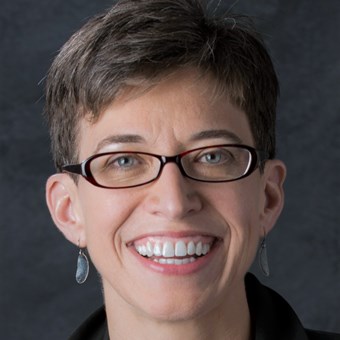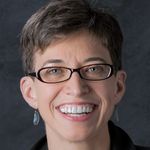Inspiring Minds Want to Know: Informational Interviews and Early-Career Professionals in Higher Ed

Inspiring Minds Want to Know: Informational Interviews and Early-Career Professionals in Higher Ed
This semester I have been leading the professional development seminar for our full-time graduate students in the Higher Education Administration Program here at BU Wheelock. Given COVID-19 and the current state of higher ed as a sector, it is no surprise that it’s a small group this year, with just four students. However, given the same challenges, they have become incredibly close, and I have learned so much from them over the course of the semester.
We first met in mid-September, when I was still working in city hall and juggling all the things. Then, in October, when I was back to BU full-time, I was on campus five days a week and fully in the higher ed space. I have been using Designing Your Work Life as an optional text for this seminar, and I have based mini lectures and assignments on the book’s content. I have also adapted exercises from the group coaching program I led with Leslie Wang and other exercises I discovered while in the leadership coaching program at Georgetown.
The students have done a lot of internal work defining what meaningful work looks like for them. They have defined their values, articulated master assessments, started to think about their why (Simon Sinek–style) and kept “good work” journals.
I have continued to ask them, why higher ed? Why now? What about higher ed? Does your work in higher ed require a residential campus? What kind of impact do you want to have? We have used DYWL impact maps to help them determine whether they are more interested in one-on-one (personal) work, global work or leading teams or institutions. I have also asked them to consider the type of work that they find meaningful—ranging from renew/repair to sustain/support to the new-new work of building new things.
In the first couple of weeks of class, they updated their LinkedIn profiles and added one another and their other classmates (the 75-plus part-time students in our on-ground and online programs) to their networks, and they joined our LinkedIn group that includes program alumni. A few weeks ago, they signed up for job alerts, and we have started to look at all of the openings out there—there are so many!
They have been reading higher ed news every week at Inside Higher Ed, the Chronicle, Times Higher Ed, University Affairs, and Diverse Issues in Higher Ed and have started to look at the patterns of the recurring issues that interest them.
The students have also conducted informational interviews with several different higher ed professionals over the course of the semester (thank you to those of you who have participated in these conversations!). I asked them to vary these by institutional type, geographic location and functional areas of the institution. This was a difficult assignment. We gravitate toward what we know and what we are comfortable with.
The informational interviews were amazing, and although it was often challenging for them to find folks to interview, the conversations were really enlightening. I enjoyed reading their papers and listening to them share the results of their interviews with one another. It was as if we had invited 24 guests to meet with us without giving up any of our time together. The seminar runs the full year, so we’ll be together again in late January, when the next semester begins, and we’ll do more of these at that time, but these will be strategically related to their job searches, as they will be actively on the market in the spring.
Some of the lessons learned from these conversations were about different roles on our campuses, institutional types (public, private, R-1, community colleges, HBCUs, international), and locations (across the U.S., including California, Texas, Georgia, Florida, Pennsylvania, New York and Washington State, as well as outside the U.S.—Colombia, Canada, and Kazakhstan). In these conversations, the students were also able to learn about what a day-to-day schedule looks like for different higher ed professionals: from one-on-one student meetings to team meetings via Zoom to interviews for so many of our open positions. This looks different because of COVID-19. The students were often interviewing exhausted faculty, staff and administrators, and this was especially stark at our underfunded public institutions and tuition-dependent privates.
In yesterday’s class, we spent time talking about what we want to do together in the spring. We know that we will work on identifying open positions, updating résumés, crafting DEI statements and cover letters, lining up references, practicing for interviews (phone, Zoom, on-campus), and joining professional associations.
I will also be stepping in as program director in January, and my time with these four students has really given me a glimpse of what the future of higher ed holds. I am hopeful and inspired. They see the challenges our sector is facing and they still want to be here!
This post originally appeared on Inside Higher Ed’s University of Venus blog. Reprinted with permission.

Mary Churchill is the associate dean for strategic initiatives and community engagement at BU Wheelock.